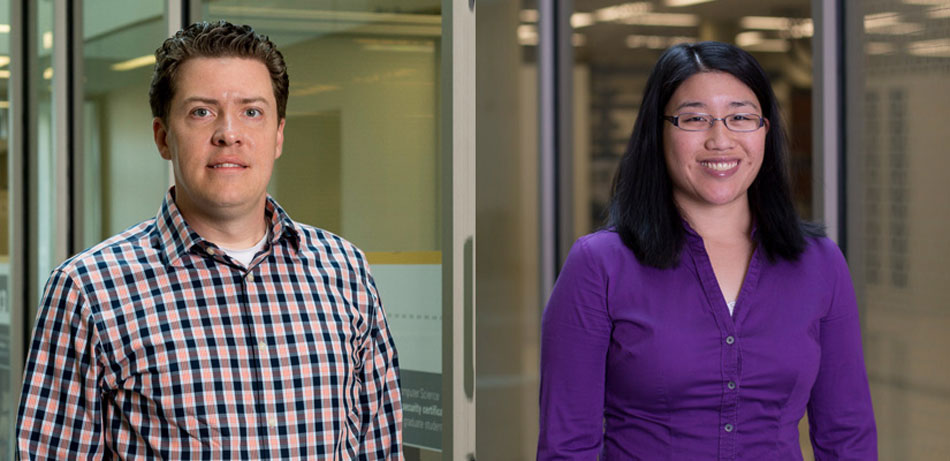Daniel Conway, Ph.D., assistant professor in the Department of Biomedical Engineering, and Christina Tang, Ph.D., assistant professor in the Department of Chemical and Life Science Engineering, have each received National Science Foundation CAREER Awards for 2017. This is the NSF’s most prestigious award given to junior faculty. It supports the early career-development activities of teacher-scholars who most effectively integrate research and education within the context of the mission of their organization. VCU’s engineering faculty now hold a total of seven NSF CAREER Awards.
“An NSF CAREER Award is recognition of a faculty member’s scientific expertise and perhaps more importantly, their potential for inspiring future generations of scientists and engineers,” said Barbara D. Boyan, Ph.D., dean of the VCU School of Engineering. “Drs. Conway and Tang certainly fit this definition of academic excellence. It goes without saying that all of us at VCU are very pleased that Dan and Tina are part of our School of Engineering. Go Rams!”
Conway received the award for his research on how cells experience mechanical forces and the role those forces play in cell function. Mechanical forces change cell signaling through a process known as mechanotransduction. While forces are known to influence fundamental cellular and tissue level functions, the cellular sites for mechanotransduction remain poorly understood. Conway’s research project will determine how and when the nucleus experiences mechanical force, and then determine how these forces regulate cellular functions. These studies have the potential to identify a new fundamental mechanism of mechanotransduction that would be present in all animals’ cells. Conway said he is looking forward to the kind of in-depth inquiry made possible by this award’s longer funding period.
“A stable, five-year grant like this gives an investigator the ability to delve in and perhaps even take more risks than you can in a shorter time span,” he said. “It’s also significant that the VCU School of Engineering has received two of these awards this year. It indicates that we have an environment here that is effective in developing younger scientists.”
Tang received the award for her work in chemical processing to achieve complex chemical products. Her research will pioneer nanoscale chemical processing to achieve chemical products including pharmaceuticals, with significantly reduced hazardous waste. Tang will work to develop knowledge necessary to create multifunctional polymer nanoreactors that accelerate chemical reaction and deliver product isolation without the need for aggressive, waste-producing solvents. Ultimately, the nanoreactors will support efficient, sustainable manufacturing of pharmaceuticals and basic chemicals from biomass. “What we really want to do is take chemical production processes that require huge plants and facilities and shrink them down to one one-thousandth the size of a human hair,” she said. Tang’s research will also be integrated with advanced training in multifunctional nanoreactor technology and sustainable chemical manufacturing for undergraduate and graduate students.
“This is different from most other grants because it is not just money to complete a project,” Tang said. “It really is a foundational award that allows you to create a fundamental base for what you will be working on for the rest of your career. Another nice aspect of the NSF CAREER Award is that the research feeds back into the chemical engineering curriculum and community outreach.”
Begun in 1995, the NSF CAREER program provides promising junior faculty the opportunity to pursue outstanding research, excellence in teaching and the integration of education and research.
